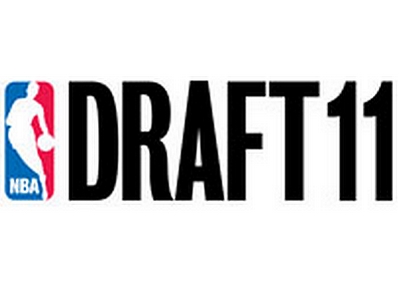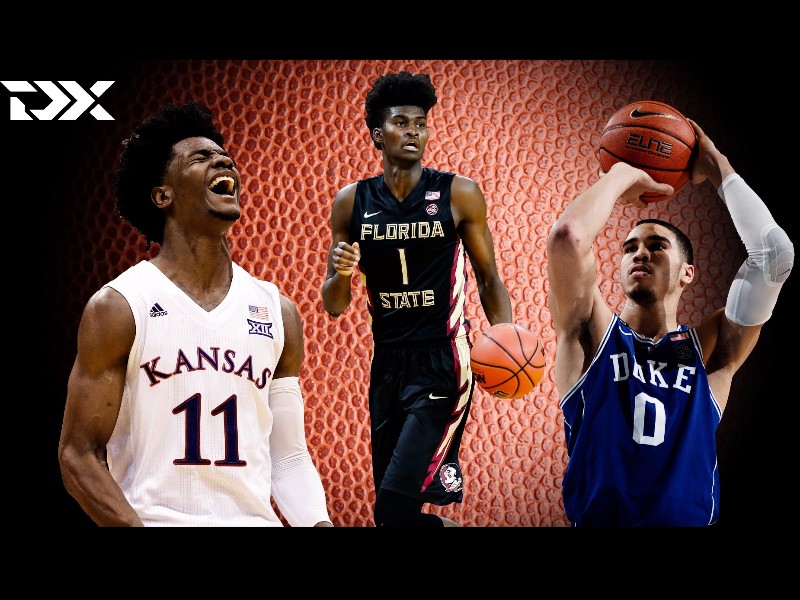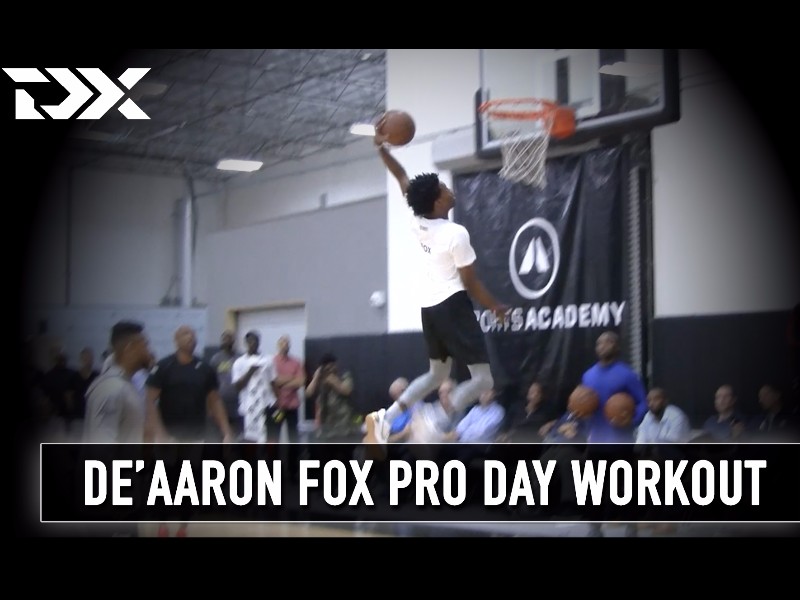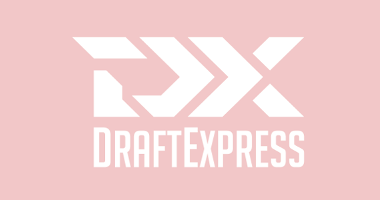The NBA Draft's infrastructure is in a constant state of flux.
The last decade has seen the institution of an age limit, the elimination of 5-on-5 competition at the NBA pre-draft camp (now called the NBA Combine) and most recently an NCAA imposed deadline for early entry withdrawal. This latest move has been met with perhaps the most criticism from across the basketball community as it significantly decreases the opportunity for players to collect accurate information about their professional future before opting to return to school or remain in the NBA draft.
In the current model, the earliest underclassmen can begin to speak with NBA teams is April 28th, with the NCAA's withdrawal deadline slated for this Sunday (May 8th).
Eleven days.
While some will point to the boost the NCAA has received from such high profile one and done phenoms as Derrick Rose and John Wall, others will inevitably highlight the likelihood that more players will enter without the proper information, unsure of their actual stock value.
What has been lost in this debate are the players themselves: lauded for their prodigious abilities on the basketball court, but ultimately no different from any other college student. Beneath the million dollar investments lie eighteen and nineteen-year-old young men, on the precipice of a future that is at once potentially great, but in many cases, equally uncertain.
As much training, as much practice, as much sheer heart as these athletes put into the game - their livelihood - nothing can prepare them for the transitory moment when their futures can be made or broken with one decision.
The Father and Son
Torrel Harris weaves his car through traffic, a cell phone to his ear, his son riding in the passenger seat in a nearly identical pose. It's a scene that has played out more times in the last month than either can remember, father playing the role of chauffeur as his son recovers from another intense training session. These days Harris spends more time driving and on the phone than during his days as a player-agent when he represented such stars as Hall of Famer George Gervin. He likely speaks with more NBA teams in the present as well. Of course, this time the work is pro bono and the client a little closer to home.
Tobias Harris is a supremely gifted 18-year-old at the University of Tennessee. A year ago he was one of the most highly sought after high school seniors in the country due to his unique combination of size (6-foot-8) and skill level, a blending of talents that led to calls from nearly every major basketball program in the nation. With his father conducting the recruiting process and providing the company of a constant travel partner, Tobias ultimately decided on the Vols as the team that would help launch him onto an NBA career when the time came to go pro.
Following a freshman season in which he averaged 15.3 points, 7.3 rebounds and earned All-SEC second Team honors, the Harris' decided it was time to take the next towards Tobias achieving his dream and so he declared for the NBA Draft. He and Torrel haven't stopped running since.
It's a full-time job, Torrel Harris says with a laugh. The training, speaking to people, traveling all over, it's been real hectic, but it's an important time in his life. I want to give him all the proper information so he can feel comfortable in making that final decision.
Information is the driving force in these hectic days leading up to the NCAA's draft withdrawal deadline how much can players get and how much can they trust it? Much as his ability to handle the basketball like a guard in a forwards body has given Tobias an advantage on the court, so too has his father's extensive contact list given him an edge in the decision game.
While the younger Harris works feverishly to prepare his body for the potential rigors of a month-long workout schedule for upwards of the 10 to 12 NBA teams that have already allegedly expressed their interest in bringing him in for an evaluation, Torrel tirelessly works the phones seeking enough opinions and feedback to ensure his son makes the most education decision come Sunday.
It means so much to have his help in all of this, Tobias says from the passenger's seat of his father's car. Not too many other people have that kind of resource on their side. It's an extra boost to me to find out where I am and to help me get to where I want to be.
According to Torrel, Tobias may already be closer to his ultimate goal than most. While conversations at this point are nothing more than preliminary, the elder Harris insists that more than 15 teams half the NBA have expressed tremendous interest in the burgeoning forward. Furthermore, Tobias has already partaken in a pair of private workouts with two undisclosed teams. The results have been promising.
Of course that's where it all ends at present with hearsay and overtures of interest. Like so many of his peers in the same predicament, Tobias has no real affirmation of anything other than what teams tell his father. Almost all of these franchises are going solely based on footage they've seen of the freshman from his inaugural college season and nothing more. They were barred from watching him in high school and were unable to evaluate him last spring in the all-star game settings (the McDonld's All-American game, Nike Hoop Summit and Jordan Brand Classic) due to injury.
While his versatile nature on the court, knowledge of the game and work ethic are undoubtedly factors that will lead take him far, there are still concerns as with any pro prospect, not the least of which is where to play him on defense.
At his current size of 6-foot-8 most experts would agree that Harris is an inch or two shorter than the ideal to adequately defend the low post. But does he have lack the lateral quickness to consistently guard perimeter players? In the past, Tobias would have ample opportunity to work out for NBA teams, likely in conjunction with other players, to give them a better sense of where he stands in regards to these question marks. More importantly though, these workouts help pro franchises further along in their decision making process, allowing them to provide a more accurate picture (in conjunction with their coaching staff) of where a given prospect falls in their future plans.
The reality, however, is a rushed conclusion on the part of the student-athlete. Which begs the question is this a fair position to put them in?
Is it a fair situation? I wouldn't say it's the easiest one, but it's what has to happen when you try to make this leap, Tobias says with a polished air that will serve him well at the professional level one day. This is what we dream for; it's every kid's dream to play in the NBA.
One that, barring some unforeseen turn of events, Tobias will one day realize. The challenge now is to decide when to pull the trigger.
The specter of an impending lockout in the NBA looms over this year's draft class, an omnipresent shadow that undoubtedly has and will play a role in the final verdicts for many players weighing their future options. Tobias unquestionably has it harder than most however.
While the uncertainty of the 2011-2012 NBA season looms in front of him, the possibility of NCAA imposed sanctions in the wake of the Bruce Pearl scandal at Tennessee are threatening him in Knoxville. The Harris's are well aware of the risks involving both options.
There's a lot of uncertainty [at Tennessee] right now, Torrel Harris says. There are questions about what the NCAA will do, do they get a postseason ban? That's the scary part; it's a risk that we won't know until June, just another factor that makes this difficult.
But with the window of time quickly closing there is no opportunity for the Harris's to slow down and contemplate, only continue preparing for every conceivable scenario. Tobias has spent the last month splitting time between Tennessee and Texas, attending class and taking his finals Monday through Thursday, before traveling to Houston and San Antonio to on the weekends to train under his father's former client George Gervin and another former star in John Lucas. Torrel will continue to collect intelligence until his son must decide his future with whatever information is available.
It's not anywhere close to fair, Torrel says matter-of-factly. There is no evaluation period right now you're either in or you're out. Teams aren't making their decisions right now; they're doing it after the balls drop. How can a team really do an evaluation on you when they don't even know where they're going to fall in the draft?
The Loner
Some 900 miles to the north Reggie Jackson makes his way across the Boston College campus on a blustery afternoon. The junior guard took the ACC by storm this season, averaging over 18 points, 4 rebounds and 4 assists after two relatively anonymous years on underachieving Eagles teams. While the idea of playing professionally was never far from his mind, a breakout season combined with a draft class largely devoid of elite point guards outside the top ten picks pushed Jackson's NBA aspirations forward a year ahead of schedule.
Today he stands on the precipice of potentially the most important 48 hours of his 21-year existence. As one of the few participants in the New Jersey pre-draft workout considered worthy of a potential first-round pick, Jackson will have his first and only opportunity to perform in front of NBA teams up close on Saturday afternoon. His hand will be forced a little over 24 hours later.
It's a very difficult decision for a guy like me given that I'm hearing everything from late lottery on down for my range, Jackson says of the NCAA's draft deadline. It's hard to get a sense of things when there are no real opportunities to work out for teams to get a feel for where you are.
Especially when you aren't that guy in college basketball, not a Kemba Walker, a Jimmer Fredette, teams can be late on you. It's hard to get a fair assessment of where you may end up. There's about a month and a half until the draft, that's a lot of time for teams to do their homework on you. Having to decide by Sunday is very tough. If you want to take that chance and stay, you run the risk of not being able to finish out your career. You also run the risk of not getting that first round contract.
That's what they strive for all of them. Hearing one's name called in the first round of the NBA draft is akin to being a made man. That's fine and well for players widely considered a lock to land in one of the coveted top 30 spots, but what of the ones stuck in Jackson's predicament?
While Harris is widely considered a first-round lock and has his father working tirelessly to utilize his connections for the best possible information, Jackson might as well be flipping a coin to determine his fate. While he and his brother Travis (older by eight years) have been working with due diligence to gather any and all information that may prove useful in the final hours before the deadline, it has quickly become evident that the only thing wider than Jackson's draft range is the chasm between he and a full understanding of how he is perceived by NBA teams.
This process falls almost entirely on the kid and hopefully they have people around them who can help, Jackson says. We don't have connections or bonds with scouts and GM's; we don't necessarily know what to filter out from what we're told.
It's kind of a blind situation. Teams know more about certain guys than others right now. I could play well this weekend but if teams know more about other guys and have their doubts, what are you going to do?
The easy answer is go back for a final year of college, but at what risk? Injury? A stronger draft class in 2012? The unfortunate reality for many players is the perceived weakness of this year's draft, in many ways forcing their early entry at the danger of being completely lost in what is expected to be a significantly stronger year.
Knowing full well the number of potential lottery picks that have passed on NBA riches for at least one more season, Jackson is adhering to the old adage of striking while the iron is hot.
Some of those players returning only helps my cause, Jackson says in a refreshingly candid moment. You know if a team is looking for a small forward they'd look to Harrison Barnes, if they wanted someone inside they'd draft Jared Sullinger, but this draft they'll have to look to get other pieces. Maybe they need a point guard and maybe I'm on their list. I'm definitely kind of fortunate for some of those guys going back to school for another year.
Of course the 6-foot-3 guard could just as easily find himself among that very group in another 48 hours, returning to Chestnut Hill, Massachusetts for a final season with the Eagles, before his inevitable descent back into the fray.
A Guard, A Coach And An Agent
Five weeks ago Brian Gregory didn't know Iman Shumpert.
Well, that's not entirely true. As the head coach at Dayton in 2009, Gregory was on the opposing bench when his Flyers beat Shumpert's Georgia Tech team in Puerto Rico. The difference a couple of years can make.
Today, Gregory is beginning his second month of presiding over the Yellow Jackets basketball program. His first and perhaps most important task at hand: trying to figure out how to replace the very point guard he defeated two seasons ago. On Tuesday Shumpert a junior that exudes potential given his impressive physical gifts for a point guard announced on Twitter that he would be staying in the draft officially, having hired Happy Walters of Rogue Sports as his agent. It's a move that Gregory insists was the plan the moment his would be star entered as an early entry candidate.
Unlike a lot of guys, I think he had his decision pretty well made up when he announced it, Gregory says. I was impressed with how he and his family went about gathering all of the information that they did. The one thing I told him is that I felt it was important that even before he entered the draft he needed to decide what it would take for him to stay in the draft.
According to Shumpert, however, his verdict turned not on what he was hearing about his stock (everything from late in the first round to undrafted), but rather what he could do to change it.
I felt like while I was trying to finish out the semester, I wasn't able to put my all into the workouts, the 20-year-old says. I feel like if I'm going to going to turn any heads I need to put my all into it be in the best shape I can be and be on top of my game.
It's a bold move to be sure, one that could at once pay off huge dividends or lead to a prolonged existence as a basketball journeyman. Scouts are equally as intrigued by Shumpert's athletic ability and defensive prowess as they are weary of his lack of a jump shot and inconsistent point guard play. Still, like Harris and Jackson, he had the help of his family to sift through whatever information they could finesse out of teams, all of which was based on a season in which Georgia Tech finished a paltry 13-18, losing in the opening round of the ACC Tournament. This of course begs the question how much are pro teams influenced by wins and losses in college?
Certainly the concept of drafting players with a winning mentality is nothing new, but in a future where players are almost entirely judged on their body of work in college with little or no opportunity to work out in the individual setting, could these kinds of factors subconsciously impact scouts? It's worth pondering, but Happy Walters says the bigger concern for players like his client isn't their perceived ability to win in college or even what pro scouts may actually think of them, rather what they're being told by those who claim to be in the know.
What they have to do is rely on people that have ulterior motives, be it a handler; a coach who needs that player to come back, both sides of the fence it doesn't help the player, Walter says. I don't think the coaches want to be stuck giving these kids life changing information when they don't even have all of the information themselves. I don't think it pays for these kids to listen to their friends or teammates either when they really need to be sorting it out for themselves.
Many coaches for that matter don't see the benefit in forcing their players to hand earlier either, even if it ultimately does mean many opt to stay in school longer. Gregory who has pledged his full support for Shumpert's decision says the danger in an earlier deadline is the inevitable manner in which the NBA will begin to infiltrate the college season.
Where once coaches could assure players that upon the seasons conclusion a full discussion of options would transpire, Gregory sees that process speeding up exponentially, a potentially hazardous scenario for players and teams alike.
One of the possible dangers is as more of this information is shared during the season, is an 18-year-old kid going to be able to focus on the task at hand while he's receiving information that pertains to a decision taking place after the season? My concern is a player that is double-minded in trying to help his college team while also worrying about what kind of a decision he is going to have to make. Do we really want to be putting these kids in that kind of a situation?
Many would argue otherwise, though there are those who view it as a worthwhile risk as part of chasing a larger dream. Count Shumpert in that second group.
Faced with the prospect of returning for his senior season to improve his deficiencies playing for a team expected to be in the bottom half of the ACC while balancing a class schedule just didn't seem the appropriate course of action. Instead, Shumpert finds himself in Bradenton, Florida training at the renowned IMG Academy which will serve as his home base so to speak during the weeks leading up to draft night. The somewhat sad irony of his situation is even with his part in this process now set in stone, his future remains anything but certain.
At the time of this story's publication Shumpert has yet to officially schedule any individual workouts with any of the NBA's 30 teams. Furthermore, he declined participation in the pre-draft camp in New Jersey. Many opportunities to audition himself will inevitably come given his potential and the positive feedback he claims to have already received from some organizations, but what of other prospects with far less certain futures?
As he speaks following his first workout at IMG Shumpert exhibits a perspective far beyond his years, fully aware of the potential repercussions stemming from his decision, but with the fortitude to handle them.
I just feel like you need to play to win, not play to not lose in this kind of a situation.
The Future
The NCAA has already pledged to move its self-imposed draft deadline up even further next year, to early April, less than two weeks after a national champion is crowned and several before the NBA's early entry deadline of April 24th. While this may not seem of much consequence to the pro prospects who find themselves watching the Final Four from home, consider that NCAA rules mandate absolutely no contact between underclassmen and pro teams during the season. This includes family members.
Players who find themselves with a limited time frame to collect information and feedback from pro teams in 2011 will have no opportunity of any kind in 2012, lest they run the risk of losing their future college eligibility. Needless to say second unilateral move by the NCAA has drawn criticism from all sides.
My opinion is there should either be no age limit like it used to be, or it needs to be more than one year minimum, Walters says. It really doesn't do any good when you have this kind of a deadline because you're going to get kids coming out who really don't know any better. I don't think the NBA and NCAA are working hand in hand because if they were I don't think the NCAA would be cutting out the NBA's legs on this issue.
Whether or not an earlier deadline results in lengthier college careers for star players or yields more ill-fated draft night stories is yet to be seen, but there are those who see the decision as a failure to fulfill educational duties.
I just feel it's our obligation to give these kids the best opportunity to be successful and in this case, information is a key ingredient, Gregory states. Proper information is ever more important.
By being able to do more workouts, have more interaction with people at the professional level, go through the combine, all of that, it gives them much more accurate information. I don't understand why we wouldn't give those guys that opportunity. Our job as educators and coaches is to give our student athletes the greatest chance to be successful. I think more guys will make bad decisions because the information that they're getting won't be coming from the people that ultimately make these decisions.
Which is what this debate boils down to: decisions. The NCAA has made its decision, now it's up to the players to make theirs.
Testing the Waters

May 07, 2011, 04:36 am
Read Next...
-
Comparing and Contrasting the Prospects of Tatum, Jackson and Isaac
Jun 21, 2017, 02:52 pmIn a draft class lauded for its guards, three exceptionally talented, and wildly different, forward prospects sit in the top six of our mock draft, each taking a very different path to the top, and demonstrating wildly contrasting strengths and weaknesses. So who is the best prospect among the three? -
De'Aaron Fox Catalyst Sports Pro Day Workout
Jun 21, 2017, 10:49 amVideo from the De'Aaron Fox Catalyst Sports Pro Day Workout in Los Angeles. Video produced by Matt McGann.
Recent articles
8.0
Points
1.9
Rebounds
3.3
Assists
13.1
PER
11.4
Points
2.7
Rebounds
5.2
Assists
13.7
PER




































Comments